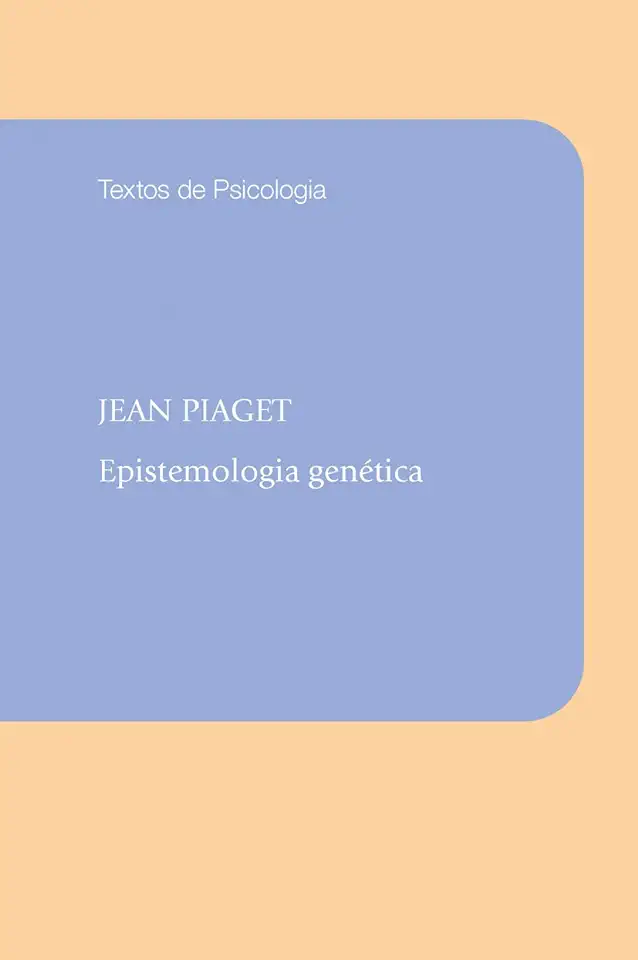
Genetic Epistemology - Jean Piaget
Genetic Epistemology: Jean Piaget's Revolutionary Approach to Understanding Cognitive Development
Unraveling the Mysteries of Human Knowledge: A Journey into Genetic Epistemology
In his groundbreaking work, "Genetic Epistemology," Jean Piaget embarks on an intellectual odyssey to unravel the intricate tapestry of human knowledge. Through meticulous observation and analysis, Piaget unveils the mechanisms by which individuals construct their understanding of the world around them. This seminal work challenges conventional notions of learning and intelligence, offering a profound new perspective on the development of human cognition.
Key Concepts: The Building Blocks of Piaget's Theory
Piaget's genetic epistemology rests upon several fundamental concepts that provide the framework for his theory. These concepts, including schemas, assimilation, accommodation, and equilibration, serve as the cornerstones of his groundbreaking approach.
Schemas: Piaget introduces the concept of schemas as mental structures that individuals use to organize and interpret their experiences. These schemas are dynamic and constantly evolving, adapting to new information and experiences.
Assimilation: Assimilation is the process by which individuals incorporate new information into their existing schemas. This process allows for the expansion and refinement of existing knowledge.
Accommodation: Accommodation occurs when individuals encounter information that does not fit into their current schemas. This process involves modifying or creating new schemas to accommodate the new information.
Equilibration: Equilibration is the driving force behind cognitive development. It represents the delicate balance between assimilation and accommodation, as individuals strive to achieve a state of equilibrium between their existing knowledge and new experiences.
Stages of Cognitive Development: A Path to Intellectual Maturity
Piaget's theory outlines four distinct stages of cognitive development, each characterized by unique cognitive structures and ways of thinking. These stages provide a comprehensive framework for understanding how individuals progress from infancy to adulthood.
Sensorimotor Stage (Birth to 2 Years): During this stage, infants primarily rely on their senses and motor skills to interact with the world. They gradually develop an understanding of object permanence and begin to form simple mental representations.
Preoperational Stage (2 to 7 Years): This stage is marked by the emergence of language and symbolic thought. Children begin to use words and images to represent objects and ideas, but their thinking is still egocentric and lacks logical reasoning.
Concrete Operational Stage (7 to 11 Years): Children in this stage develop the ability to think logically about concrete objects and events. They can perform mental operations such as classification, seriation, and conservation. However, their thinking is still tied to concrete experiences.
Formal Operational Stage (11 Years and Up): This stage marks the pinnacle of cognitive development. Individuals develop the ability to think abstractly and reason about hypothetical situations. They can engage in deductive reasoning and consider multiple perspectives.
Implications for Education: Nurturing Intellectual Growth
Piaget's genetic epistemology has profound implications for education. By understanding the stages of cognitive development, educators can tailor their teaching methods to match the cognitive abilities of their students. This approach fosters a more effective and engaging learning environment, promoting intellectual growth and development.
Conclusion: A Transformative Journey into the Human Mind
"Genetic Epistemology" is a seminal work that has revolutionized our understanding of cognitive development. Piaget's groundbreaking insights into the mechanisms of knowledge construction have left an indelible mark on the fields of psychology, education, and philosophy. This book is a must-read for anyone seeking to comprehend the intricacies of human intelligence and the fascinating journey of cognitive development.